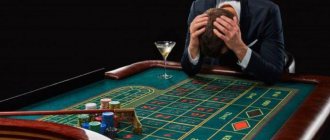Recently, American actresses Lori Loughlin (“Full House”) and Felicity Huffman (“Desperate Housewives”) found themselves at the center of a scandal: the FBI accused them (and a dozen other people) of participating in a fraudulent scheme through which wealthy American people placed their children in prestigious universities in the country.
And while legal proceedings are in full swing in Los Angeles, let's remember the 11 most successful and wealthy people who do not have a higher education, and some of them did not even go to college.
Mark Zuckerberg
Mark Zuckerberg, considered a genius in the technology industry, is the creator of Facebook, the largest social network in the world. Zuckerberg left Harvard in 2004, his sophomore year, to work full time on this very project, which has now become a reality and is worth about $34.8 billion. Mark Zuckerberg studied at Harvard at the Faculty of Psychology and at the same time took courses in information technology.
Anna Wintour
Today, the editor of American Vogue, who always appears in black glasses and with a permanent bob, has enormous influence and unquestioned authority. It was assumed that after school, 16-year-old Anna would go to college, but the girl decided her fate differently. She studied journalism for four years, and at 21 she got a job at the popular British publication Harpers & Queen, where she made a brilliant career.
Is it possible to be truly happy at work (and is it necessary)
Laziness, arrogance: what irritates Russians in bosses
Location matters: why some people can't find work
David Karp
The creator of Tumblr (one of the nine most visited sites in the US) didn't even graduate from high school. He dropped out of Bronx High School in 2001 to study at home, but never graduated.
Karp now has a personal fortune of $200 million. Karp began his career as an intern for Fred Seibert at the animation company Frederator Studios, where he built the studio's first blogging platform.
Karp then worked for UrbanBaby until it was sold to CNET in 2006 and then founded his own software consulting company, Davidville, where he worked with computer engineer Marco Arment on projects for clients. During a break between contracts in 2006, they began work on a microblogging site, which launched as Tumblr in February 2007.
Larry Ellison (Net Worth: $48 Billion)
0
Larry tried twice to get the coveted “tower”, but each time circumstances forced him to quit his studies. As a result, he concentrated on developing his own business creating database management systems. In 1977, he created Software Development Laboratories, later renamed Oracle Corporation. Already in 1986, Alison first discovered his name in Forbes magazine next to the line “personal fortune is estimated at $185 million.”
Pete Cashmore
At age 19, Pete Cashmore founded Mashable without ever attending college. The lack of education does not seem to affect his success at all: the entrepreneur's fortune is estimated at more than 6 billion rubles, and in 2012 Kashmore was included in Time magazine's list of 100 most influential people.
In 2022, Mashable was sold to Ziff Davis for $50 million and more than 50 employees were laid off.
Savitri Jindal
Until 2005, she was quite happy as a mother of nine children and the wife of Om Prakash Jindal, founder and chairman of the OP Jindal Group. The death of her husband after a plane crash forced Savitri to go against tradition (Indian women are not expected to work as they are responsible for the home) and take on the role of head of the company. Despite her lack of education, Jindal was able to continue her husband’s work and create one of the largest industrial empires in India. Today her sons run the business, but their mother, in their opinion, is the cement that holds the whole family together.
Daniel Ek
Daniel Ek was 21 years old when he co-founded Spotify. To do this, he left the university - the Royal Institute of Technology in Sweden - after only 8 weeks of study. Spotify is now one of the most successful music apps in the world with over 32 million subscribers. Ek boasts a fortune of more than 19 billion rubles.
Good question “Together we founded our first business”: People talk about how they managed without higher education
I didn’t get a higher education because I didn’t want to—probably that would be the most accurate way to say it. It was a forced decision to enroll, because, frankly, at seventeen I didn’t have the slightest idea of who I wanted to be, what to do, who to study for. I looked with envy at my classmates who knew exactly where they wanted to go. It’s a shame that back then I didn’t know about such a thing as a gap year. The trends of that time came to the rescue - it was fashionable to learn programming (“prestigious profession”, “you will earn a lot”). As a result, I entered the Faculty of Mathematics, studied for a year and a half, and then realized with horror that I absolutely did not see myself in this profession, I did not want to earn money from it, even if it was a lot of money. Interestingly, the competition for the faculty was very small - apparently people have little idea who mathematicians and programmers are. Well, the word “mathematics” scares many.
If you don't study and don't receive a scholarship, you have no choice but to go to work. I remember my state when I decided to leave: it took me a while to pick up the documents, but the decision was made—my soul felt so light, as if I had gotten rid of a heavy burden. I can imagine what it’s like for those who study hard for all four years. Without thinking twice, in a youthful impulse to benefit people, I went to work in a hospital.
Work can teach you a lot if you observe carefully. There are no moms, dads or curators behind you. Now everything is yours: mistakes, failures, successes, decisions, and time. Such freedom can make your head spin, and it is not surprising that someone is scared at the thought that there will no longer be any instructions or directions in life. The university is the last link in the classic chain “kindergarten - school - university”, the last straw for those who are afraid of the unknown. I learned to be independent and I don’t regret it. One of the important lessons is quite banal, but it can be difficult to learn - that it doesn’t matter at all what anyone thinks about whether you have a higher education or a husband, or about the size of your salary.
After long wanderings from a nurse to a barista, from an office manager to a freelance artist, I came to the position of a designer in a good company. I didn’t consciously strive to get into design; I really wanted to become an artist. But when I got into the profession, I immediately realized that this was mine: this is what I want to do, this is where I understand how to do it better. Everything turned out very naturally: at first I just did what I liked, and then it became my profession. Now remote work allows me to do a lot of things: illustrate books for an independent publishing house, learn Japanese, do calligraphy and some of my own projects that are not yet ready to go into full swing.
When I think about higher education, linguistics comes to mind. I have a good friend who is a linguist; we worked together as translators for TV series, and then, while discussing interesting and unusual cases with her, I realized that I had fallen in love with translation and could very well do it. Now this is a conscious and mature decision, although I understand that everything was fine with languages at school - I just didn’t notice it myself, and the teachers didn’t emphasize it. It’s much easier to live when you understand why you want to do this or that business. When you have already felt it from the inside, learned the mechanisms and understood what skills will be required. If after thirty I want to change my occupation, I know what I will choose. This option doesn’t scare me, I’m used to change, and in my experience, it usually leads to the better. But I have not yet become a master in my current field and I want to develop in design.
Now I am undergoing training at the Moscow ShAD, because I realized that I can’t go further on the same experience. This is not a “tower”, but a large and serious course that meets current needs. I would like to structure the information, sort it into sections. Now that I have chosen a profession and am sure that I will be doing this for the next many, many years, it is crystal clear to me that I need to study. But again, you first need to find the meaning, and then make a decision, and not vice versa. I can’t say anything about the appetite that comes with eating: most of my friends and classmates who went to study in the wrong place either didn’t finish their studies or don’t work in their profession.
I only recently learned about one unobvious disadvantage of not having a higher education: it’s difficult to emigrate without a diploma. And you are also deprived of the wonderful student time of sloppiness and freedom, community stories and KVN. I didn’t have all this, and I regret it a little. I had to grow up for my work, and I think not everyone will be comfortable plunging headlong into the world of adults and their big problems. For me everything worked out very well, but for others it may not be the right path. You need to learn to listen to yourself.
I decided to receive my specialized education in Japan. This decision contains everything: my passion for languages, my tender love for this country, and design, with which we will go hand in hand for a long time. Nowadays education is not an end in itself, but a full-length experience: to improve your language skills, to get acquainted with a bunch of new things. In addition, it would be interesting to receive it in another country, where, perhaps, the simplest things are looked at completely differently.
Richard Branson
Another example of an unconventional billionaire is Richard Branson, one of the most famous businessmen in the world. Owner of the Virgin Group, he left school at 16 to create a student magazine, his first successful business. He bought a Caribbean island at age 24, and in 1991, Branson crossed the Pacific Ocean from Japan to Arctic Canada (10,800 km) in a hot air balloon.
And in 2022, Branson conquered space.
Interestingly, Richard Branson had learning difficulties and poor grades, which is attributed to dyslexia. The entrepreneur claims that at school he was even considered mentally retarded.
Michael Dell (Net Worth: $18 Billion)
0
Michael began making his first money during his school years, selling subscriptions to newspapers and magazines in his native Houston. Soon he became interested in computers and, having already entered the university to become a doctor, began handicraft production of computers. Selling homemade computers began to bring Dell such an impressive income that he decided to drop out of the University of Texas after his first year. PC's Limited, founded at that time, was later renamed Dell Computer Corporation.
Henry Ford
Car guru Henry Ford, born into extremely poor circumstances, never went to school. He dedicated his entire life to creating the historic Ford Motor Company, which made him one of the richest men in history.
He is credited with "Fordism": mass production of inexpensive goods combined with high wages for workers. His aggressive commitment to systematically reducing costs has led to many technical and business innovations, including a franchise system that has established dealerships throughout North America and in major cities on six continents.
Bill Gates (Net Worth: $76 billion)
0
The founder of Microsoft, who regularly tops the lists of the richest people in the United States and the world, has been fanatically interested in computers and programming since school. In 1973, Gates entered Harvard, but for some reason, the Faculty of Law. Two years later, he was successfully expelled and was finally able to devote all his time to business. To be fair, we note that Gates did receive a Harvard diploma. This happened in 2007 by decision of the university administration - in short, it doesn’t count.
Philip Green
Entrepreneur who created the multinational company Arcadia, which includes brands such as Topshop, Topman, Wallis, Evans, Burton, Miss Selfridge, Dorothy Perkins and Outfit. Philip Green, joined the family business at 12 and left school at 15. He is now one of the most successful people in Britain. His assets are $4.1 billion.
Roman Abramovich (Net Worth: $9.1 billion)
0
In 1983, the future billionaire, Chelsea owner and politician entered the Ukhta Industrial Institute at the Faculty of Forestry. Roman did not show any particular interest in studying, and therefore began to engage in business. Soon, entrepreneurship came to the fore, and Abramovich dropped out of school. He quickly grew from the owner of the Uyut toy production cooperative into an important figure in the oil business: for example, in 1999, his fortune was estimated at $14 billion. In 2000, Abramovich became the governor of the Chukotka Autonomous Okrug, for some time becoming the hero of jokes. He gained international fame thanks to such actions as the acquisition of the English football club Chelsea, payment of a fabulous fee and all additional expenses to Guus Hiddink as the head coach of the Russian national football team, the purchase of a 162-meter yacht and other lovely gigantic expenses.
Walt Disney
(GERMANY OUT) *05.12.1901-15.12.1966+Filmproduzent, USAPortr?t am Schreibtisch- undatiert (Photo by ullstein bild/ullstein bild via Getty Images)
The founder of the Walt Disney Company left school at the age of 16. The future entrepreneur was born into a poor family, and his father often beat the boy, considering corporal punishment the best method of raising children. But my mother often read fairy tales by the Brothers Grimm and Hans Christian Andersen to the young dreamer.
With the outbreak of World War I, Walter serves as a Red Cross ambulance driver in France. His car becomes the object of everyone's attention when Disney decides to decorate the ambulance with drawings.
Steve Jobs
Steve Jobs radically changed our lives in 40 years, and he did it without a higher education!
Little Steve was raised by foster parents who promised to send the boy to one of the most expensive universities in America, Reed College. But the future computer genius attended classes only for the sake of Eastern practices, and soon dropped out of school altogether.
“I didn’t know what I wanted to do with my life, but I realized one thing: university definitely wouldn’t help me realize it,” Steve commented in his speech to graduates. Who would have thought that already in 1976 he would found one of the most popular companies - Apple.
The products brought Steve a budget of $7 billion.
Ingvar Kamprad
Net worth: $4.2 billion
The founder of IKEA made his first capital by reselling pencils to classmates and matches to neighbors. Then Christmas cards, fish, pens and much more were used.
Ingvar suffers from dyslexia, so his studies were difficult for him. He did not even try to enter higher educational institutions, but in 1945 he graduated from the Higher Commercial School in Gothenburg.
In 1948, Ingvar began selling cheap furniture, in the early 1950s he launched production at his own factory, and in 1953 he opened the first IKEA store.
Charlize Theron
The Hollywood star does not have a higher education, or even a secondary education. She once really wanted to become a ballerina and even dropped out of school for this dream.
After Charlize's knee injury, she had to abandon this idea. Then the girl decided that a career as a model and actress would also suit her.
Ralph Lauren
Today's famous fashion designer, as well as one of the richest people in the world, Ralph Lauren, grew up in poverty. He entered Bernard Baruch College, but after two years of study he joined the army.
Upon returning, Ralph did not resume his studies at college, but began creating ties, from which his great story began.
Zarakh Iliev: king of Moscow real estate
Sometimes labor education can contribute to the development of an entrepreneurial spirit. This is what happened in the life of Zarakh Iliev: he grew up in the family of a shoemaker and, together with 4 brothers, perfectly mastered the art of working with leather. The first business was born in my childhood, when hand-sewn “aerodrome caps” were selling like hot cakes in Azerbaijani markets. At the age of 17, when his peers were entering universities, Zarakh went to Moscow to visit his relatives - it was there that his new life began, still associated with real estate.
Having collected some start-up capital from the sale of flowers and the supply of cognac, Zarakh Iliev bought several trading containers at the Izmailovsky market and began renting them out to entrepreneurs. In 1993, he registered and began to manage 15 hectares of the Cherkizovsky market. After 7 years, this company bought out 57% of the shares of ORTC Moscow JSC. At the same time, another one was created, which bought out FSUE Eleron. Later it turned into the Moscow car hypermarket.
Today, most of Zarakh Iliev’s capital comes from owning 50% of the Kievskaya Ploshchad group, whose rental income in 2015 amounted to $1.1 billion. With his fellow countryman and partner Gon Nesanov, Iliev bought out many large companies and areas and is engaged in the construction of new facilities. They own the Lotto City shopping complex with an area of 1.5 million square meters. m, oceanarium "Moskvarium". An impressive complex of 350 thousand square meters is being built in Moscow City. m with a hotel, restaurants, offices, large parking.
The Radisson-Ukraine hotel in Moscow became part of the entrepreneur’s fortune. He holds six patents, the most famous of which is a rotating advertising structure with suspended cars.











